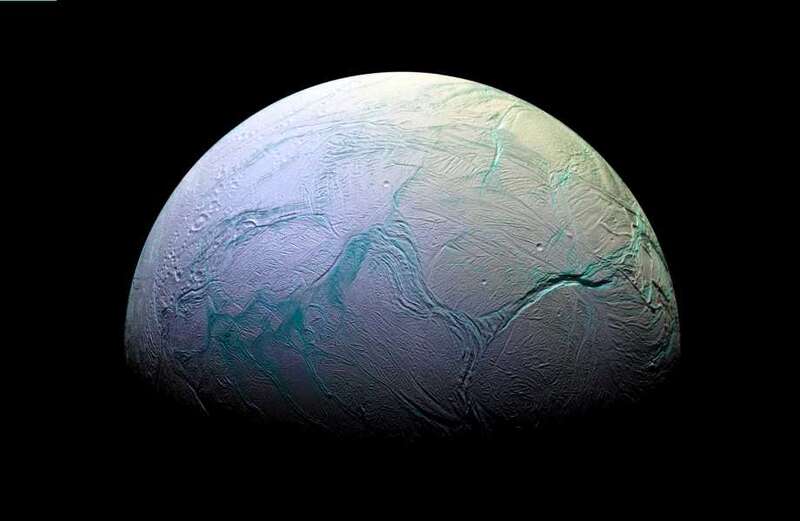ALIEN life may be lying in wait on distant moons in our solar system, tucked away beneath vast oceans, according to a new study.
Scientists have long pondered the idea of extraterrestrial life, and organizations like Nasa are collecting clues that life could exist - or previously existed - on other planets.

Now, a team of researchers at UC Santa Cruz has uncovered clues that alien life could be hiding away on Jupiter's and Saturn's moons.
A study published today in the Journal of Geophysical Research: Planets postulated that the same vents found on Earth's seafloor may promote life on "ocean worlds" orbiting distant planets.
These structures, known as hydrothermal vents, are commonly referred to as "hot springs" on the ocean floor. They derive their heat from the molten rock beneath underwater volcanoes.
 Andrew Tate 'tried to lure ex-Playboy model to Romanian lair' before his arrest
Andrew Tate 'tried to lure ex-Playboy model to Romanian lair' before his arrest
Circulating seawater in the ocean crust is heated up before leaving the seafloor and mingling with cold water. It often carries dissolved chemicals from the rocks, creating smoky gray plumes.
In another type of venting known as diffuse venting, lower-temperature fluids emerge as glistening water rather than "smoke".
These lower temperatures may support communities of ocean life around the vents - and the researchers believe something similar may be playing out in outer space.
Ocean worlds are defined as planets and moons that have, or once had, a liquid ocean.
The scientists pointed to Europa and Enceladus, two moons orbiting Jupiter and Saturn, respectively.
Plumes of vapor have been observed erupting from the surface of both moons, but scientists have struggled to identify just what's causing them.
However, previous studies have hinted that some ocean worlds release enough heat, mostly generated by radioactive decay, to drive hydrothermal circulation.
In the latest study, researchers used a computer model based on hydrothermal circulation as it occurs on Earth.
After manipulating factors like heat and fluid circulation depth, they discovered that hydrothermal vents could exist under a host of conditions.
While many previous studies of hydrothermal circulation on Europa and Enceladus have looked at higher-temperature fluids, one result from the computer simulations was particularly promising.
 Inside US's most remote town 2.4 miles from Russia where only 77 people live
Inside US's most remote town 2.4 miles from Russia where only 77 people live

Under low-gravity conditions like those found on the seafloor of Enceladus, circulation can continue with low temperatures for billions of years, the scientists found.
This could explain why some ocean worlds have ancient fluid circulation systems below their seafloors, despite limited heat.
Considering their longevity, these fluid circulation systems could have existed for millennia - giving life the time it needs to develop.
"This study suggests that low temperature (not too hot for life) hydrothermal systems could have been sustained on ocean worlds beyond Earth over timescales comparable to that required for life to take hold on Earth," said Andrew Fisher, the paper's lead author.
The team from UC Santa Cruz will be attending the launch of Nasa's Europa Clipper later this fall. The spacecraft will blast off from Cape Canaveral, Florida, in search of signs of life in Europa's ocean.
Scientists have mostly depended on observations from satellite missions while studying conditions present on ocean worlds.
The authors of the paper conceded that it is difficult to gather data from these celestial objects due to their distance from Earth.
"Thus, it is essential to make the most of available data, much of it collected remotely, and leverage understanding from decades of detailed studies of analog Earth systems," they wrote.


































